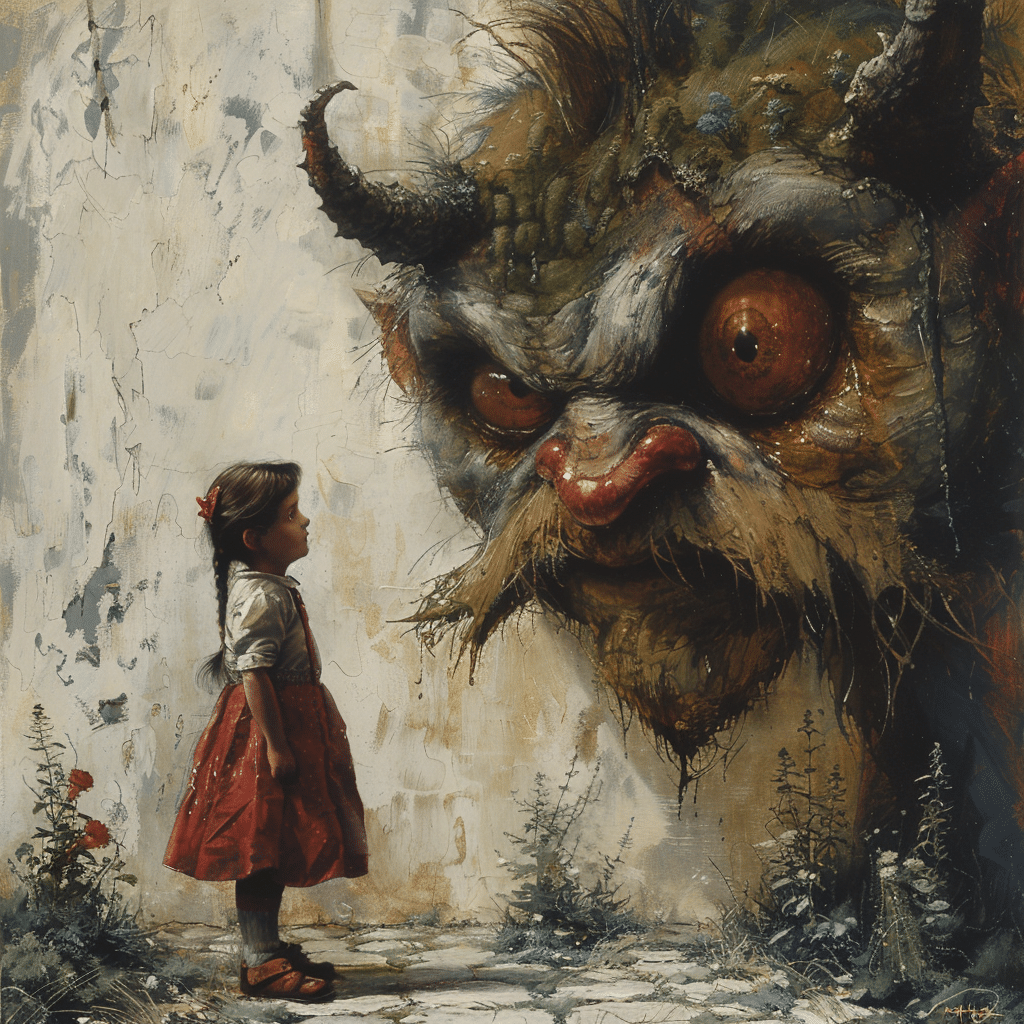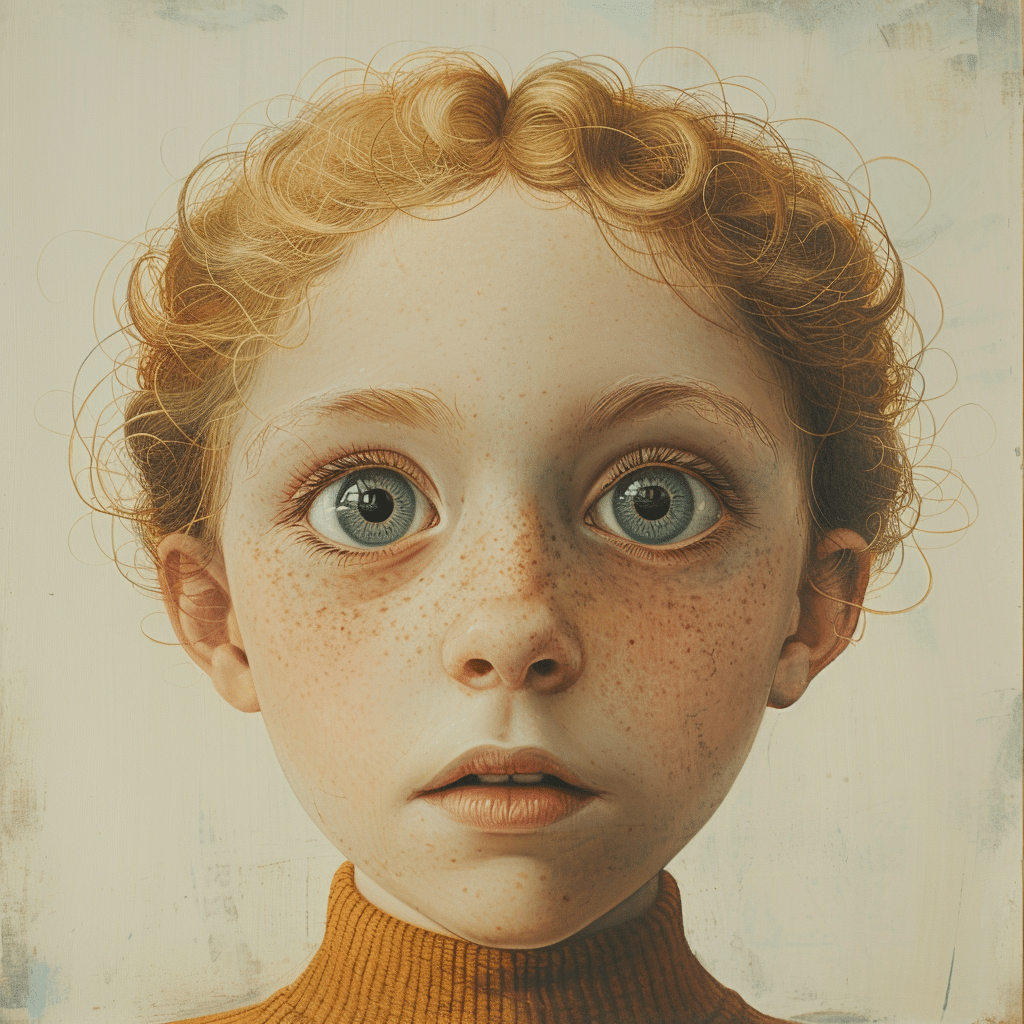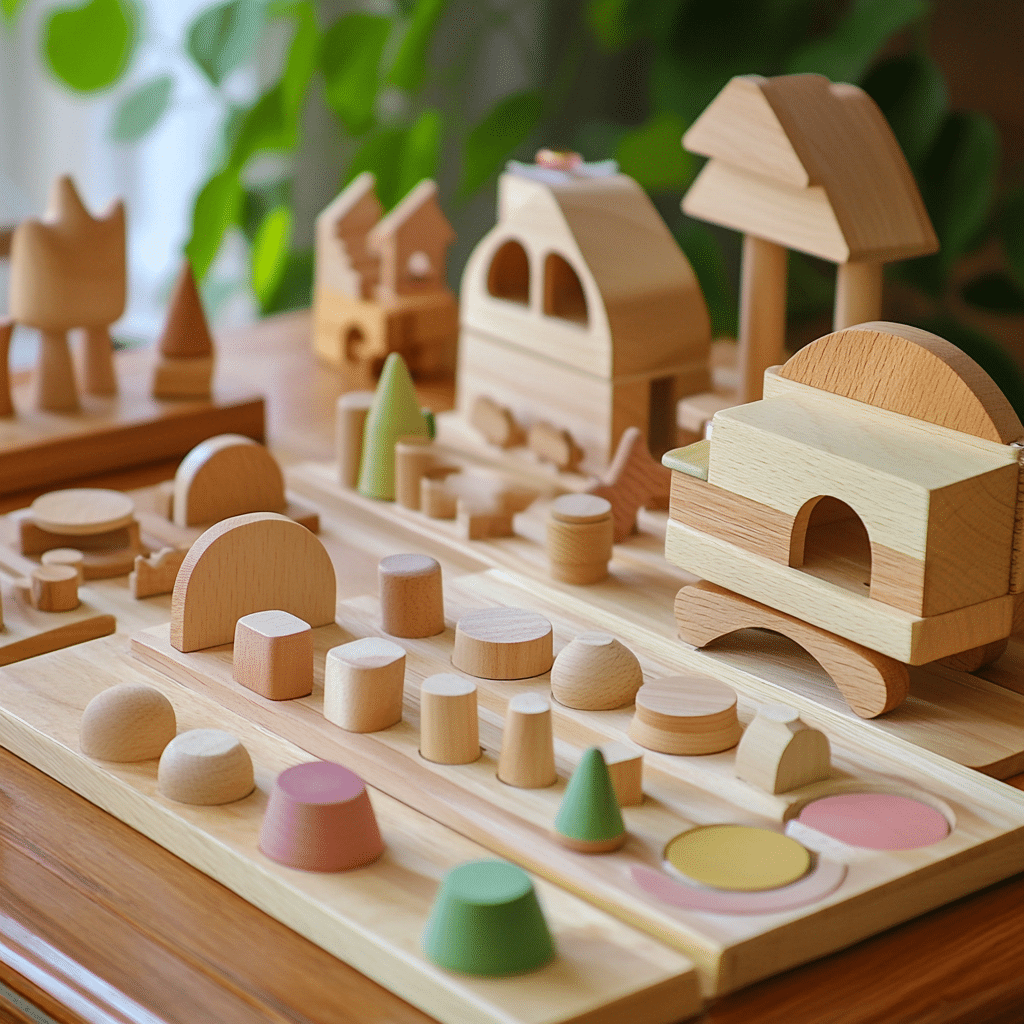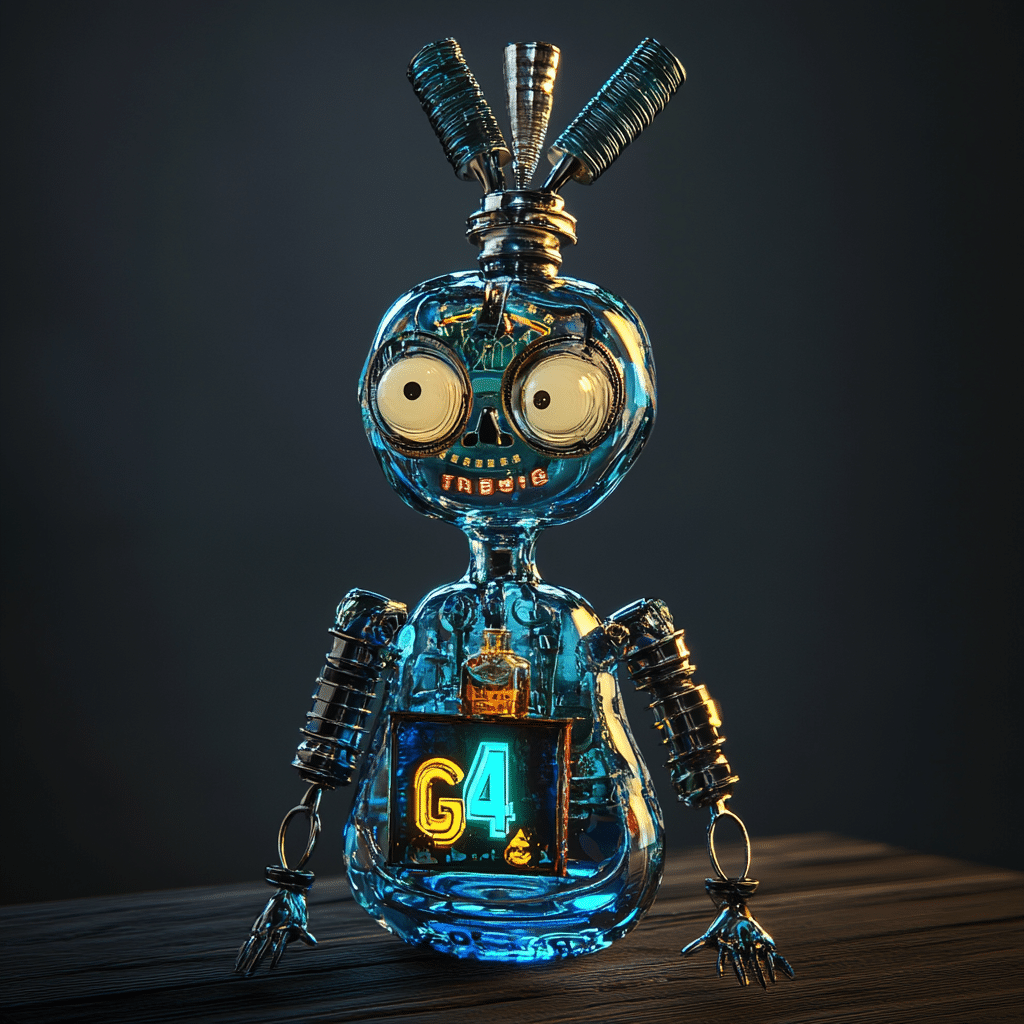The Complicated World of Adult Child Syndrome: A Brief Overview
Alright, guys and gals, let’s dive straight into a topic that’s been flying under the radar, yet it’s as real as that post-workout muscle soreness—adult child syndrome. Now, don’t get it twisted. We’re not talking about refusing to share your dessert here. Adult child syndrome is like a psychological anchor holding folks back from sailing smoothly into adult responsibilities—all thanks to a heavy load of childhood baggage. Initially coined by the Adult Children of Alcoholics (ACA) organization, this term is a shout-out to those battling the aftermath of growing up in less than ideal conditions. We’re peeling back layers here to shine a light on those silently struggling, as understanding is the first step to wellness. So, buckle up as we unpack this complex suitcase without casting judgment or any shade.
Shocking Fact #1: A Cloaked Epidemic – Prevalence Rates Might Surprise You
Heads up, you might want to sit down for this: adult child syndrome is more common than scoring an empty bench at the gym during peak hours. I kid you not, recent research has turned up some eyebrow-raising stats. From coast to coast, a multitude of adults are quietly navigating this syndrome, with increasing numbers citing prolonged academic pursuits and a shaky economy as reasons for delayed ‘adulting.’ Imagine the pressure of a barbell without the right form; that’s what we’re talking about. We’re seeing serious societal trends shaping up this cloaked epidemic, and it’s about time we bring it to light.

| Feature | Description | Relevant Date | Additional Notes |
|---|---|---|---|
| Definition | A condition stemming from unresolved childhood trauma, influencing the adult’s ability to engage in healthy adult relationships and decision-making. | – | Originally identified in the context of children of alcoholics. |
| Origin of Term | Coined by Adult Children of Alcoholics (ACA) to describe the ongoing impact of growing up in a dysfunctional home, especially with alcoholic parents. | Oct 23, 2022 | ACA offers support and resources for those affected. |
| Behavior Patterns | Unable to cope with adult responsibilities, some adults may revert to childlike behaviors during stressful situations or to manage past trauma. | Dec 5, 2023 | This can manifest in both voluntary and involuntary age regression. |
| The Lost Child Phenomenon | Adults who felt invisible or neglected in childhood often feel unprepared for life and relationships, resulting in feelings of isolation and confusion. | Nov 11, 2020 | Reflects deeper emotional and social development issues. |
| Symptoms & Characteristics | Dependency, chronic irresponsibility, emotional instability, relationship issues, a strong fear of abandonment, and an inherent need for approval or validation. | – | These symptoms are variable and can manifest differently in individuals. |
| Impact on Adult Functioning | Challenges in employment stability, sustaining relationships, setting boundaries, managing finances, and pursuing personal goals. | – | Therapy and self-help groups can improve functioning. |
| Treatment & Support | Psychotherapy, support groups (like ACA), medication for associated conditions (anxiety, depression, etc.), and self-help literature. | – | Focus is often on healing childhood trauma, building self-worth, and developing functional adulthood. |
| Benefits of Addressing | Improved mental health, stronger relationships, a better understanding of self, and an increased sense of control over personal life. | – | Long-term commitment to therapy and self-improvement is typically required for substantial change. |
Shocking Fact #2: The Psychological Ripple Effect
Here’s the deal—dodge this issue, and you’ll find a psychological domino effect that runs deeper than a squat. The mental health landscape for individuals with adult child syndrome is one wild rollercoaster ride, and not the fun kind. Picture the ripple waves from dropping emotional weights into the pool of their lives. Independence? Submerged. Self-esteem? Sunk. Interpersonal relationships? Floundering. But hey, it’s not all doom and gloom. Real people have paddled through these waters, and with a little digging, you’ll find some heartening case studies. And while we’re talking mental health, remember to keep a grief journal to navigate tough times with grace.
Shocking Fact #3: The Economic Toll of Delayed Adulting
It’s not just their personal world that’s hit by a storm; society feels the squall, too. Costly healthcare for mental health? Check. Social systems under strain? Double-check. Lackluster productivity in adulting-mode at work? You bet. This adult child syndrome saga is swiping dollars out of wallets and cents from our communal sensibility. It’s as if we’re running a race with someone unknowingly strapped to our ankle. Companies are beginning to clock this trend but cracking the code needs some serious societal strategizing.

Shocking Fact #4: Familial Strains and the Parental Dilemma
Oh, and let’s talk family—it’s not just a walk in the park for them either. Parents are stuck between rock-solid love and a soft spot that sometimes does more harm than good. Imagine trying to teach your kid to cycle without training wheels when they’re already borrowing your office wear. Familial strains? More like emotional sprains that require some serious rehab. It’s a tightrope walk of support versus enabling, with many pining for that sweet spot of balance.
Shocking Fact #5: Societal Misconceptions and the Blame Game
Take a minute, and let’s challenge the blame game. Society’s quick to slap a ‘lazy’ or ‘entitled’ sticker on those wrestling with adult child syndrome, but that’s as far from the real deal as low-fat is from indulgent taste. These myths are as sticky as an old band-aid and muddle the conversation with off-key notes. The reality? It’s a complex medley of issues that deserves a full-blown symphony of support, not a mismatched drumbeat of criticism.
Tackling Adult Child Syndrome: Innovative Approaches and Success Stories
But here’s the good news, tackling adult child syndrome isn’t a deadlift without a spotter. From therapy titans to life-coaching wizards, there are as many paths to regaining independence as there are fitness regimens. We’ve heard tales that would light up even the gloomiest workout space—true tales of triumph over the tribulations of this syndrome. Innovative programs not only pump those resilience muscles but also sculpt a newfound confidence. Success stories are popping up, showing folks it’s possible to bench-press through the burden and come out flexing strength they never knew they had.
Conclusion: Reframing Adult Child Syndrome for a Productive Future
Let’s wrap this up with a powerful thought: adult child syndrome isn’t a life sentence, it’s a phase. You heard me—a chapter in the story that can be turned with the right mix of sweat, support, and determination. Imagine if we reframed this struggle as a transformable stretch, maybe then we could truly empower those experiencing it. What we need is a fresh narrative, one where adult child syndrome morphs from a label into a ladder leading to a more productive future. Let’s not just squat under its weight; let’s square our shoulders and rise. Together, we can spot each other through the heavies, because, at the end of the day, we’re all in this gym called life, aiming for personal bests.
So, let’s slip into our mental gym gear and handle adult child syndrome with the grace of a perfect pirouette or the drive of a deadlift PR. It’s a journey, sure, but with a solid support network, the right tools, and a dollop of good old-fashioned grit, the road to recovery can become an inspiring success story for the books. Keep those narratives positive and the action progressive. Together, we’ve got this!
Unpacking the Baggage of Adult Child Syndrome
Ever felt like, despite the gray hairs popping up, you’re still trapped in the kiddie pool of life? Well, sit tight, because we’re about to dive beneath the surface of adult child syndrome — a topic more layered than your grandma’s lasagna!
A Tangled Web of Histories
Before we slip down the rabbit hole, let’s nibble on a morsel of trivia. Ever heard of Andrew Parker bowles? This chap’s life could serve as a case study for adult child syndrome. Interestingly, folks with this syndrome often have complex family dynamics. Imagine handling the pressures of high societal expectations and family drama—it’s like trying to dance the tango on a tightrope. So, if you’re into juicy backgrounds and upper-crust chaos, you’ve got to check out the life of Andrew Parker Bowles.(
Shaving Off the Layers of Dependency
Now, let’s talk about shedding unwanted traits, kinda like how Nair Hair removal cream promises to shed unwanted hair. Just like a quick swipe with Nair hair removal cream( can leave your skin smoother than a baby’s bottom, confronting adult child syndrome might require peeling off those cozy layers of dependency. But hey, no pain no gain, right?
Knocking Out the Childish Ego
Aspiring to pack a heavyweight punch like Miguel Leon tyson means facing some heavy-hitting truths. A person grappling with adult child syndrome might swing between fragile self-esteem and a Mike Tyson-worthy ego. Learning to balance one’s emotions can be tougher than a title bout. Need some more knockout inspiration? Float like a butterfly over to what Miguel Leon Tyson( is up to.
Spoiling the Spoiled Child Within
Who said spoilers are only for movies and soap operas? Just like unexpectedly stumbling upon the “I do N’t want To be loved spoiler“,(“,) coming to terms with adult child syndrome might involve some plot twists you didn’t see coming. And just like that spoiler, the realization might make you go ‘Yikes!’, but it’s the first step toward a happier plotline.
Cuteness Overload…Or Overboard?
Gushing over cuteness can be irresistible, whether it’s spoiler alerts for all things adorable like You are so cute Spoilers( or coddling the child within. However, excess of anything, even cuteness, can be a bit much, don’t you think? Time to put away the plushies and step into adult-sized shoes—responsibly, of course!
The Deal Hunt: A Symptom or a Breakthrough?
Bargain hunting can be thrilling, no doubt. It’s like finding a hidden gem at DD’s Discounts, except sometimes, people with adult child syndrome run after deals to escape dealing with their own personal discounts in maturity. But let me tell ya, scoring emotional deals is not as simple as snagging a bargain at DD ‘s Discount.( It’s all about trading temporary thrills for long-term growth.
Falling In and Out of Love…With Yourself
Here’s the thing: Jumping in and out of romantic flings can mirror the instability of self-love in someone with adult child syndrome. They might be as unpredictable as the latest “While You ‘re in love spoiler“( — always swaying with the breeze. Building a sturdy love for oneself, though? That’s the real love story to pine for.
So, pull up your socks (or bootstraps!), because dealing with adult child syndrome is not for the faint-hearted. It’s a bumpy, winding road to emotional maturity, but hey, the view at the end is totally worth it. And who knows, with a bit of effort, you might transform from the eternal kid at the adults’ table to the grown-up that’s got it sorted. Peace out!

What causes childlike behavior in adults?
What causes childlike behavior in adults?
Well, butter my biscuit, it’s not all cut and dried, but sometimes adults act like kids again because life’s thrown them a curveball. Whether it’s trauma, stress, a nasty bout of illness, or mental health quirks, folks may slip back into kiddo shoes without meaning to, or even on purpose as a coping tactic. And trust me, it’s more common than you’d think—especially since Adult Children of Alcoholics spotlighted the whole ‘adult child syndrome’ thing on October 23, 2022.
What is the lost child syndrome in adults?
What is the lost child syndrome in adults?
Ah, the Lost Child syndrome—it’s like being a wallflower at life’s big party. Brought to light on November 11, 2020, this syndrome happens when grown-ups wind up feeling like they’re on the outside looking in, clueless about dealing with life or love because their younger days didn’t come with a how-to manual. They often wrestle with feeling invisible, cheesed off, or just plain confuzzled, grappling with emotions they didn’t square away as kids.
How do I stop enabling your grown child with mental illness?
How do I stop enabling your grown child with mental illness?
Whoa, Nelly—it’s a balancing act, for sure. Your aim’s to be more of a coach than a crutch for your adult kiddo wrestling with mental illness. Start by encouraging independence and praising their efforts to stand on their own two feet, while setting clear boundaries. And remember, it’s okay to offer a helping hand, but don’t let that morph into a full-time coddling service. Slow and steady wins the race.
How do you deal with an entitled adult child?
How do you deal with an entitled adult child?
Dealing with an entitled adult child can feel like herding cats—you’ve gotta be clever and patient. Set clear expectations and stick to them like glue. Don’t be afraid to talk turkey: let ‘em know life’s no gravy train and the world doesn’t owe them a living. Encourage a work ethic and the idea that good things come to those who hustle.
What mental illness causes childlike behavior?
What mental illness causes childlike behavior?
Mental illness can sometimes turn back the clock, making an adult seem like they’re in knee-highs again. Conditions like age regression, often triggered by trauma or extreme stress, express themselves with behavior you’d expect more at a playground than a boardroom. Psychologists have had their antennas up, especially since chatter about the topic spiked on December 5, 2023.
What mental disorder causes childlike behavior?
What mental disorder causes childlike behavior?
Let’s shoot straight from the hip: disorders like schizophrenia, dissociative identity disorder, and certain personality and mood disorders can spur on a return-to-childhood episode. These brain-based brouhahas can toss someone’s demeanor back to grade school faster than you can say bingo.
What is glass CHILD syndrome?
What is glass CHILD syndrome?
Whoever coined ‘glass CHILD syndrome’ was shining a spotlight on those kiddos that grow up in the shadows. They’re the siblings of children with severe illnesses or disabilities. Talk about tough—these unsung heroes often go unnoticed, slipping through the cracks while the family rallies around the one with the more immediate needs.
What is golden CHILD syndrome?
What is golden CHILD syndrome?
Strike up the band for the golden child—basking in the glow of being the ‘chosen one’ in the family. It sounds peachy, but it can come with a whole basket of issues like sky-high expectations and a sense of entitlement that can weigh heavy on those golden shoulders. These lucky ducks sometimes struggle to shine on their own without the family spotlight.
What is scapegoat syndrome?
What is scapegoat syndrome?
Scapegoat syndrome—oh, it’s a doozy. This one’s about being the family’s designated ‘bad apple,’ blamed for everything from burnt toast to bad weather. This role can stick like gum to a shoe, following a person right into adulthood, where they might still feel like the odd one out, even if they aren’t at fault.
When should you stop helping your adult child?
When should you stop helping your adult child?
It’s a question as old as time—or at least as old as adult kids crashing at home. Put a pin in it when you’re feeling more like an ATM than a parent, or when your help starts doing more harm than good. It’s about teaching them to fish, not serving up a fish dinner every night. Time to cut the apron strings when they gotta learn to stand on their own two feet.
How do you deal with an unmotivated adult child?
How do you deal with an unmotivated adult child?
It’s like nudging a sleepy bear—delicate but doable. Encourage setting goals and breaking them down into bite-sized pieces. Cheer on progress, but don’t break out the confetti for just showing up. Sometimes, tough love’s the ticket. Encouragement’s key, but don’t pave the road for them—let ’em earn their stripes.
How do you deal with a manipulative adult child?
How do you deal with a manipulative adult child?
Oh, slippery as an eel, aren’t they? When dealing with a manipulative adult child, keep your cool and stand firm like a tree. Keep an eagle eye on their tricksy ways and don’t fall into the guilt trip pit. Consistent boundaries are your best friend, and remember: don’t feed the trolls, even if they’re your own blood.
Do adult children have to support their parents?
Do adult children have to support their parents?
Legally speaking, it’s a mixed bag—some places throw the book at it, others, not so much. But culturally? Well, that’s a whole ‘nother kettle of fish. Many folks reckon it’s part of the circle of life to support the old-timers who reared ’em, while others might call it a day. Family dynamics are dicey, and nobody likes to air dirty laundry.
Why is my child so rude and disrespectful?
Why is my child so rude and disrespectful?
Hey now, that’s the million-dollar question. It could be they’re picking it up like a cold at school or spreading their wings in the most awkward of ways. Hold the fort with consistent discipline, open communication, and don’t skimp on the love. Remember, it’s their job to push buttons and yours to keep the ship steady.
How do I let go of my adult son?
How do I let go of my adult son?
Letting go’s bittersweet, like waving bye-bye to the ice cream truck. But look, it’s time to loosen the grip. Encourage Independence Day in your household by supporting their decisions (even the iffy ones) and trusting the job you’ve done raising ’em. Deep breaths—it’s like ripping off a bandaid, better all at once.
Is acting like a child a trauma response?
Is acting like a child a trauma response?
Sure as sugar it can be. Adult child syndrome, buzzing since October 23, 2022, underscores how childhood trauma can holler “Back to the sandbox!” for some adults facing stress or emotional whirlwinds. It’s like their inner tot takes the steering wheel, sometimes without even asking.
What is Peter Pan syndrome in adults?
What is Peter Pan syndrome in adults?
No pixie dust required—Peter Pan syndrome’s when an adult doesn’t wanna grow up, refusing to trade in their Happy Meals for grown-up grub. They avoid responsibility like it’s the plague and often have commitment issues that’d make a lone wolf proud. Peter Pan syndrome isn’t in the psych books, but boy, does it make waves.
Does ADHD make you act like a child?
Does ADHD make you act like a child?
ADHD can leave a grown-up coloring outside the lines, so to speak. It’s not just a kid thing—adults with ADHD may seem a bit more squirrel!—distractible, impulsive, or fidgety, kinda like they’re running on kid-fueled engines. It’s not all shenanigans, though; with the right tools and support, ADHD adults can conquer even the tallest of adulting mountains.
Is childlike behavior a symptom of dementia?
Is childlike behavior a symptom of dementia?
Peekaboo, it sure can be. Dementia sometimes plays this cruel game where it rewinds the clock and adult behavior gets all mixed up with the kiddie channel. We’re talking changes in personality and acting out like they’re back in short pants. It’s tough cookies for families, who have to navigate this heart-tugging rerun of childhood traits.






























